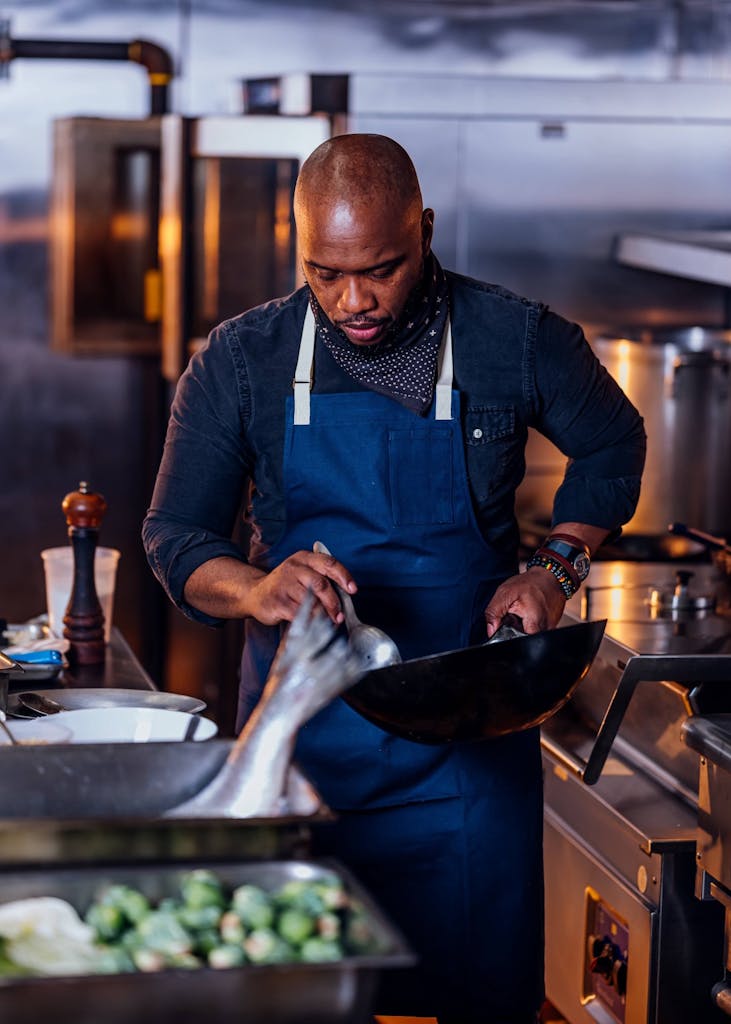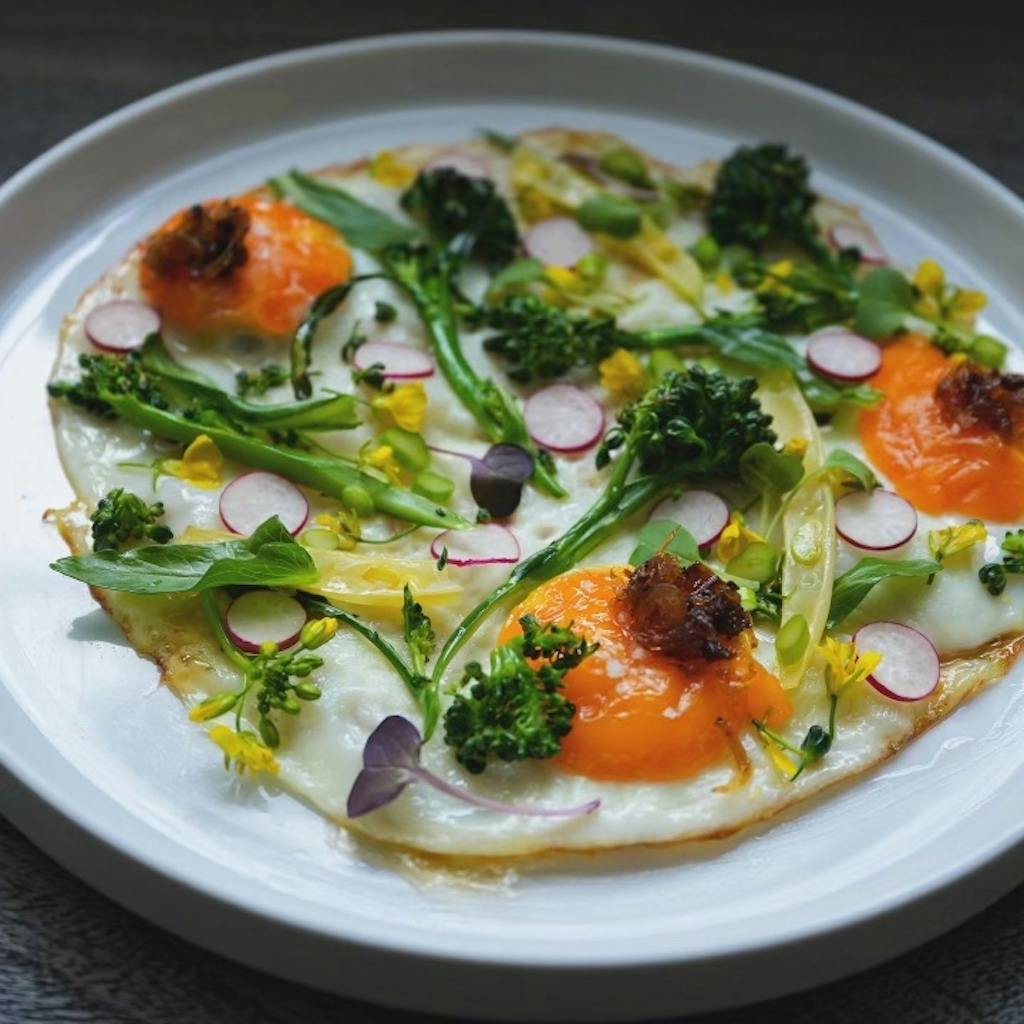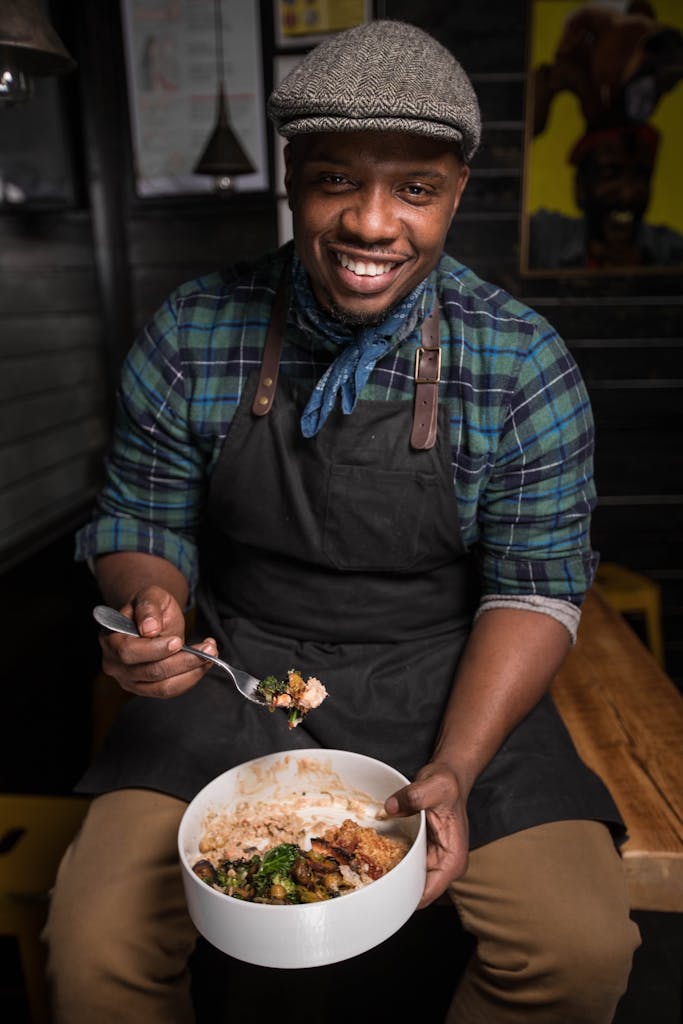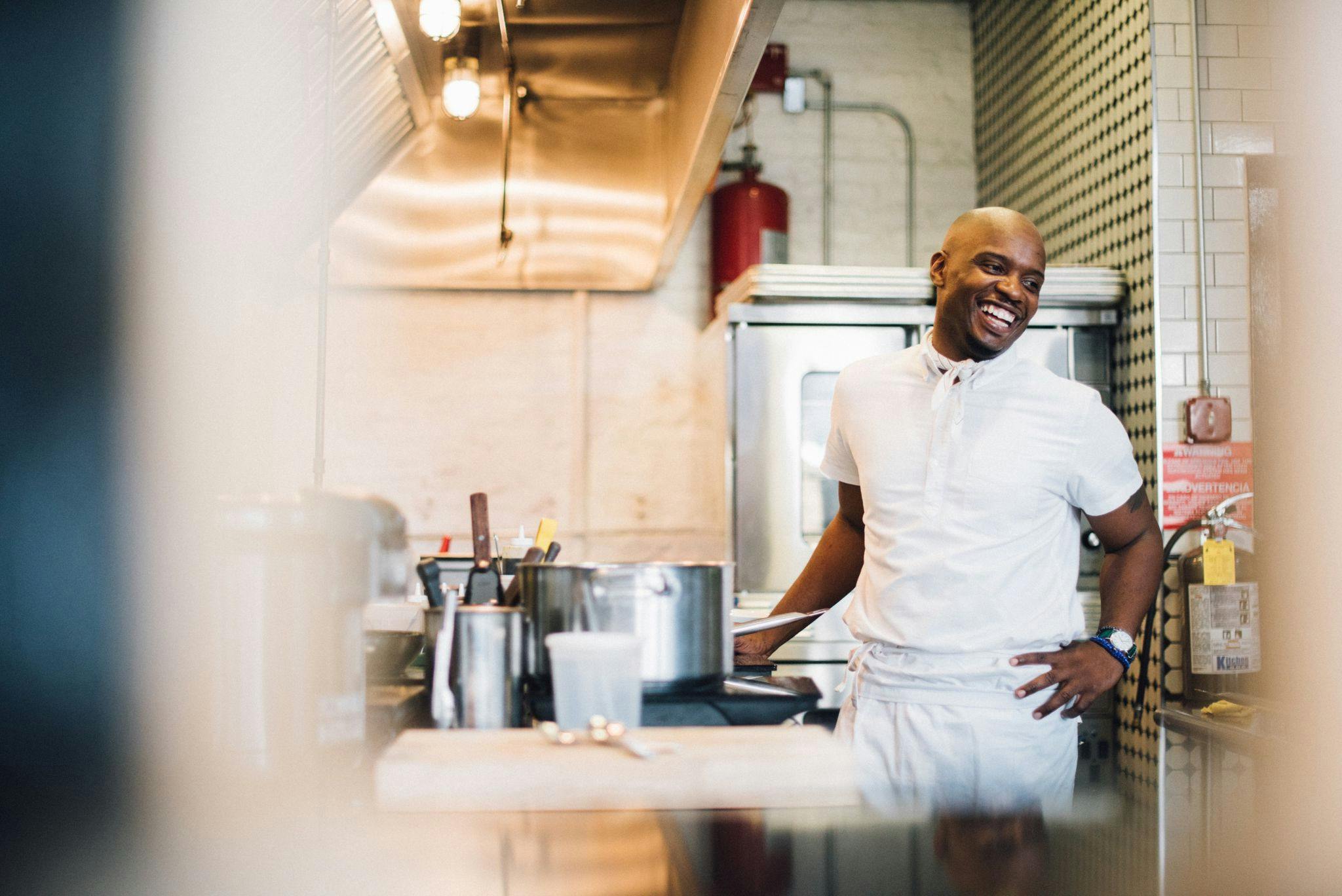S.A.L.T. Spotlight: Discovering Smoke with Chef Rawlston Williams in the Caribbean’s Bequia
“I’m absolutely haunted by the lack of smoke in my food when I cook in the States,” says New York-based, Caribbean-born chef Rawlston Williams, calling from his home island of Bequia in St. Vincent and the Grenadines. “Here everything we make has that one element you can’t mimic or duplicate—smoke. Back in the day, no one really had an oven. They’d make one out of an oil drum, with coals inside and burning firewood on top. You can make the same dish today in a regular oven but it just won’t have that nuance, that next-level caramelization that can only come from burning wood in that kind of vessel.”
Williams is back in Bequia laying the groundwork for a series of cooking experiences he created for Silversea’s S.A.L.T. program, along with his friend Jerry Simpson, a photographer and filmmaker turned salt producer. Simpson, who shot for Martha Stewart Living and Food & Wine magazines and an array of commercial clients before moving full-time to the island in 2017, runs the Grenadine Wild Sea Salt company out of a beautiful seaside 17th-century sugar mill.

Williams studied to be a preacher. But then life took some turns, as it often does, and he ended up finding his calling in the kitchen rather than the pulpit. After graduating from culinary school in New York and working in restaurant kitchens around town and for a time as a private chef, he opened—without, he says, quite meaning to—a restaurant in Brooklyn called The Food Sermon. His distinctive take on Caribbean cooking immediately found a devoted flock of fans. After the New York Times raved (“dishes are generous, details exacting”) and named it one of the top 10 best places in the city to dine on a budget, the fervor (and waiting times) increased. Williams closed the restaurant during the pandemic but has kept busy with a variety of other projects, including an island-by-island book on the cuisine of the Caribbean he’s in the process of researching, a recent pop-up in Brooklyn that sold out within hours, and a series of cooking videos for Bon Appetit and others. “If you watch my Bon Appetit videos I smoke everything,” he says laughing.
While he and Simpson were preparing for the first S.A.L.T. experience in Bequia—which will definitely have an element of fire—we checked in with Williams about the place that continues to inspire him, the taste memories he hopes guests take home from their time in the Grenadines and how growing up strictly vegetarian sharpened his senses as a cook.
How did you start cooking?

It wasn’t something I set out to do professionally. It just sort of happened. Being from the islands, cooking was always in my DNA. We cook for fun. More often than not, we spend most of our days outside. We didn’t have much television. We just got TBS, the Superstation. Basically you’d get a bunch of Westerns, some baseball and sometimes The Jeffersons. I figured everyone in the States lived in a skyscraper and rode horses. Me and my friends, we would cook in the yard for fun.
We’d take these large aluminum powdered milk pans, and we would use that to cook in. What Jamaicans call a callaloo and what we call bhaji is just growing at the side of the road and we’d make that with rice. So sort of the equivalent to playing video games or basketball, me and my friends, we’d cook. A lot has changed, but people still do that here, though maybe not on the level that we did it. It’s just a community thing. I think the idea of all of us hovering around one pot and cooking and then just partaking together, that’s really just innate to us. It’s just a natural thing. It’s just what we all strive for.
Who taught you? Did you watch your grandmothers cook in the kitchen?
I know how to make food because my aunt who raised me at the time was sick a lot. She can’t come out of bed so I’m cooking at like five, six years old. I’m making dinner, I’m in the yard making Sabbath lunch. She’s in bed and she’s yelling out of the window down to me. Okay, put some oil in the pan, do this, do that…When you’re finished, let me know. So I do all that, boom, boom and I come back and yell up I’m done! And then she would say, Okay, now do this… and that’s how I kind of started.
What were dishes or flavors you loved as a kid?
I was raised at Seventh Day Adventist, so we were very strict about not partaking in any eating of pork or shellfish. I wasn’t allowed to eat meat most of my life. So for a long time the way I “consumed” meat was through smell. I’d go to my friends house and they’d have stewed chicken and such, and I wasn’t allowed to partake in the stewed chicken. But I smelled it. And I learned to cook in a way by smell. I can smell when the oil hits the pan and then the onions and the garlic. And I can tell the different stages of the process. Or I can smell the burning of the sugar to make the caramel or the stew chicken. I learned through deprivation, through smelling what I couldn’t have.
When you started cooking professionally did you plan to cook the Caribbean food you grew up around even if you didn’t experience a lot of it at the time?

That was the last thing I ever wanted to do. Remember, I didn’t know how to do it. So the food I cook now is the way I imagined food being in the Caribbean, not necessarily the way it is.
It’s authentic, but how I get there isn’t at all traditional. People have called what I do fusion. And I say call it whatever you want but you’re giving me too much credit. I never sat down and said, Hey, I’m gonna meld this and this together. It was literally me just doing what I thought was the way to go. I think I have more flexibility in creating because I am not handcuffed by tradition. But people recognize the food. They recognize that it’s different, but it also speaks to them. It speaks to them the as though someone had done it in a traditional way. Because the flavors are there. They recognize the unrecognizable in some way. It’s like a different way of arriving at the same destination.
What’s the message you’re delivering with the Food Sermon?
The idea comes from me studying to be a minister. Now I’m not preaching the word, I’m preaching food.
It’s just the way we look at food, the way we consume it, the way we create it. I feel that Caribbean cuisine is often taken for granted, you know? It’s often overlooked. People love it, but they don’t quite rate it on a certain level, right? Because, let’s be honest, the way the cuisine comes about, it’s very influenced by being enslaved and having to use scraps or what was available to you. It came from a level of survival and working to feed your family, you know? So there are going to be some funky looking cuts and maybe some weird smells! So many of our flavors and a lot of how and what we eat comes from necessity and ingenuity. And all of this is worthy.
What might we be missing about Caribbean cuisine if we’re just dining at resorts and high end restaurants catering to travelers?
I’m thinking about tri-tri. Tri-tri are tiny hatchlings from the mullet. At certain times in the full moon, you put these burlap bags at the river’s mouth where the river meets the ocean and when these little fish are spawning, they’ll go onto these burlap bags for shelter—and that’s how you pick them out of the water. And then you make these little cakes with them. Little bit of onion, little garlic, little bit of pepper and flour. And you can fry them up, and they’re just extremely delicious. You’re not gonna find that in a restaurant. So I find that if you’re staying in a hotel or resort, you’re gonna get what is like readily available, what’s convenient or mass produced. And it can be fine but you definitely are going to to miss a lot of nuances of the cuisine.
What specifically are you excited to share about Bequia with the guests who come to your events at the Grenadine Wild Sea Salt?
This is a remote place; it takes a lot of work to create something here. It’s a place with history. Think about this mill that was once a plantation but now is being used to help this community. So it’s a place with a complicated past that’s been resurrected and now is being used for the opposite of what it was built for. Jerry’s probably traveled more than I have and he chose to live here but I think I can speak for both of us and say it’s our favorite place in the world. So this is an experience that’s really made by people who have a real connection to this place and love it and are excited to share it.
The S.A.L.T experience “Flavors and Culture of the Grenadines: An Enchanting Historic Mill with a New Purpose and Unique Interactive Meal with a Celebrated Caribbean-American Chef” debuts next month. Additionally, Rawlston Williams will also be joining us as a guest S.A.L.T expert on select future sailing aboard Silver Dawn and Silver Nova.
